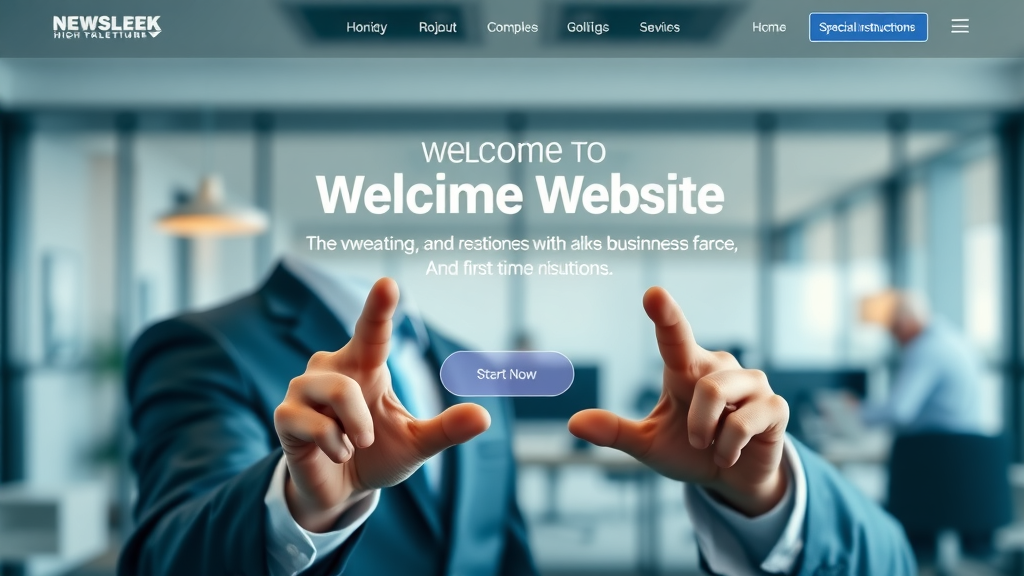Did you know that companies embracing marketing automation see a 14.5% jump in sales productivity? Time is money, and for marketers juggling multiple channels and campaigns, automation isn't just a luxury—it's essential. In this comprehensive guide, you'll discover three transformative automations that not only slash your daily workload but also drive real, measurable revenue growth. Whether you're new to automation software or looking to refine your strategy, these time-saving automations will help future-proof your business and keep you ahead of the competition.
Unlocking Success: The Impact of Marketing Automation on Time and Revenue

- Did you know that businesses using marketing automation experience a 14.5% increase in sales productivity?
- Discover how marketing automation streamlines processes and transforms busywork into profit.
Marketing automation is game-changing for businesses aiming to maximize their efforts while minimizing repetitive tasks. By systematizing complex marketing campaigns and automating tasks such as lead nurturing or social media posting, companies can focus their resources on high-value activities. In turn, this leads to faster responses, higher engagement rates, and increased sales—all without hiring more team members. It's no surprise companies are turning to automation software to power their workflows. In practical terms, automation tools help you segment customer data, deploy email marketing campaigns at the right time, and deliver personalized content to your target audience 24/7. The magic lies in being able to set your marketing process on autopilot, ensuring no customer journey falls through the cracks. Ultimately, marketing automation makes your business more responsive, gives your team a competitive advantage, and substantially increases your potential revenue streams.
How Marketing Automation Works to Streamline Your Business
Defining Marketing Automation in Today's Digital Landscape
Marketing automation refers to leveraging digital tools and software to automate repetitive marketing tasks and workflows, reducing manual intervention and errors. Today, automation software spans every major marketing channel—email, SMS, social media, landing pages, and more—helping businesses send the right message to the right person at the perfect time. This isn’t about replacing human creativity; rather, it’s about amplifying your marketing team’s impact by automating the handoffs and routine actions that eat away at productive hours. Every aspect of the modern customer journey —from the first website visit to becoming a loyal customer—can be optimized and tracked using marketing automation tools. Advanced automation makes it possible to adapt quickly to new marketing trends and customer behaviors, ensuring your digital marketing stays relevant and effective.
Key Benefits: Saving Time and Boosting Efficiency With Automation Software
The core promise of marketing automation software is saving time and boosting operational efficiency. By automating repetitive tasks like email campaigns, social media posts, or customer follow-ups, your marketing team gains back critical hours weekly. These saved hours can be invested in developing creative strategies, analyzing customer data, or improving campaign performance. Automation tools help eliminate human errors and ensure a consistent, high-quality customer experience at every touchpoint. They also provide centralized dashboards for tracking marketing campaigns and reporting on metrics, making it easy to optimize both small tweaks and big-picture strategy. Whether you’re running a one-person show or leading a larger marketing team, automation software can scale with your needs and handle growing workloads seamlessly.

Top Use Cases: Maximizing Marketing Campaigns and Customer Experience
The applications for marketing automation tools are vast, but some of the most valuable use cases include nurturing leads, sending targeted offers based on customer data, and driving upsells through timely messaging. By automatically scoring leads and guiding them through customized drip campaigns, businesses can increase conversions and foster greater loyalty. Marketing automation makes personalized content delivery a reality at scale. From dynamic website banners to tailored product recommendations, you can adapt each customer journey based on real-time interactions. Beyond personalizing messages, automation helps unify your marketing channels—ensuring every campaign works together to create a cohesive, rewarding customer experience. The result? Happier customers, more conversions, and a significant boost to your bottom line.
Mastering the Essentials: 3 Marketing Automation Strategies That Deliver Results
Automation Tool #1: Email Marketing Automation for Seamless Customer Journeys
Email marketing remains one of the most powerful channels for connecting with your audience—and when automated, it delivers exceptional ROI. Marketing automation tools can seamlessly manage email sequences, trigger follow-ups, and personalize messages based on user behavior. This results in higher open rates, better engagement, and increased sales. Some essential types of automated email campaigns include:
- Welcome sequences
- Abandoned cart recovery
- Re-engagement campaigns
Automation Tool #2: Personalized Content Delivery to Increase Conversions
Personalization is the new standard in digital marketing; customers expect brands to know their preferences. Marketing automation makes personalized content at scale possible, boosting both conversions and retention. By leveraging customer data, businesses can show dynamic website content, targeted offers, and recommendations that match individual interests and behaviors. Critical strategies for effective personalized content automation include:
- Dynamic website content
- Targeted offers and recommendations
- List segmentation strategies

Automation Tool #3: Lead Nurturing Workflows With Marketing Automation Software
Moving prospects from awareness to purchase can be complex, but dedicated lead nurturing workflows in marketing automation software simplify and accelerate the process. Automated follow-ups keep leads warm and ensure no opportunity slips through the cracks. A well-designed drip campaign gradually delivers valuable content based on each prospect's stage in the funnel. Key components of effective lead nurturing include:
- Automated follow-ups
- Drip campaign design
- Scoring and handoff automation
Choosing the Best Marketing Automation Software for Your Business
Key Features to Look for in Automation Tools and Solutions
When selecting a marketing automation solution , prioritize features that align with your business goals. Look for ease of use, compatibility with your existing CRM and marketing tools, flexible workflow designer, robust reporting, and advanced segmentation. Automation software should support all major marketing channels, help you create personalized customer journeys, and offer scalable solutions to grow alongside your business. Additionally, consider tools with AI-powered suggestions, strong security protocols, seamless integration options, and mobile accessibility. Investing in the right automation tool saves time, prevents costly errors, and ensures your team spends more time innovating and less time on repetitive tasks.
Evaluating Marketing Automation Tools: Popular Platforms Comparison
With numerous marketing automation tools available, it's essential to compare their capabilities. Consider usability, integrations, analytics, support, and cost-effectiveness. Leading solutions like HubSpot, ActiveCampaign, Marketo, and Mailchimp each offer unique advantages; your choice should be informed by your specific automation needs, business size, and budget constraints.
| Platform | Key Features | Pricing | Integrations | User Experience |
|---|---|---|---|---|
| HubSpot | Email marketing, built-in CRM, advanced workflows | Free to $3,200+/mo | Extensive (Salesforce, Zapier, etc.) | Intuitive, robust community support |
| ActiveCampaign | Email automation, personalization, lead scoring | $29–$149+/mo | Popular e-commerce & CRM platforms | User-friendly, highly customizable |
| Mailchimp | Email campaigns, segmentation, analytics | Free to $350+/mo | Many marketing and e-commerce apps | Beginner-friendly, easy setup |
| Marketo | Advanced automation, multi-channel, analytics | Custom pricing | Top CRMs, social media, analytics | Enterprise-level, deep customization |

Maximizing ROI: Measuring the Impact of Your Marketing Automation Solution
Key Metrics and KPIs to Track for Marketing Campaign Success
To accurately measure the impact of your marketing automation solution , track essential metrics such as conversion rate, cost per lead, customer lifetime value, and overall campaign ROI. Monitor open and click-through rates on email campaigns, landing page performance, and the speed at which leads move through the funnel. Using the analytics provided by automation software, it's easier than ever to identify which campaigns drive results and which need refinement. Consistent tracking of KPIs allows for ongoing optimization and supports data-driven decision-making, bringing clarity and focus to your marketing team’s efforts.

Case Study: Real-World Examples of Marketing Automation Increasing Revenue
A recent case involved a mid-sized tech startup that implemented marketing automation software to manage its lead generation and email marketing workflow. Within six months, conversion rates increased 25% and qualified leads tripled. Automated segmentation improved customer engagement by delivering personalized offers at just the right time. Another online retailer used automation tools to set up personalized abandoned cart recovery and dynamic content, recovering thousands in lost sales each quarter. The clear takeaway: modern marketing automation makes scaling your business and maximizing results easier than ever.
“Marketing automation helped us reclaim 10 hours a week and triple our qualified leads.” — Marketing Manager, Tech Startup
Addressing Challenges: Common Pitfalls and How Automation Helps Overcome Them
Avoiding Mistakes With Automation Software Implementation
Common mistakes when implementing marketing automation tools include poor integration with existing systems, lack of clear goals, and underestimating the time needed for proper setup and team training. To avoid these pitfalls, start with a workflow audit and select automation software that fits seamlessly with your current tech stack. Avoid “set and forget” mentality—continual monitoring and fine-tuning ensure that automation helps rather than hinders. Finally, invest in ongoing education for your team, so they’re equipped to adapt as your business and the digital marketing landscape evolve.
Enhancing Customer Experience with Strategic Automation Tool Use
The best marketing automation tools do more than save time— they enhance customer experience by ensuring consistent, relevant communication across all touchpoints. Automated workflows can be set to trigger based on real-time behavior, providing customers with the information or offer they need when they need it. This level of strategic automation makes your brand feel more personal and attentive, even as your operations scale. By centralizing customer data, you gain a complete view of every individual’s journey, allowing for more informed follow-ups and better segmentation. Ultimately, smart automation improves loyalty, satisfaction, and your competitive edge in an increasingly crowded market.
Step-by-Step: How to Get Started With Marketing Automation

- Audit your current marketing campaigns
- Identify automation opportunities
- Select appropriate marketing automation tools
- Set measurable goals and KPIs
- Train your team and launch pilot automations
Getting started with marketing automation doesn’t have to be overwhelming. Begin with a thorough review of your marketing process and pinpoint areas with repetitive tasks or bottlenecks. Next, explore the available marketing automation software options that best fit your goals and team capabilities. Setting SMART (Specific, Measurable, Achievable, Relevant, Time-bound) goals helps track progress and optimize new workflows. Once you have your platform chosen, involve your team early and test run simple campaigns before scaling up.
Top FAQs About Marketing Automation
What is meant by marketing automation?
Marketing automation is the use of specialized software to automate repetitive marketing tasks, such as sending emails, segmenting audiences, or scheduling social media content. The aim is to streamline complex marketing workflows, providing a consistent and personalized customer journey at scale. Modern marketing automation makes it easier to nurture leads, track performance, and boost overall efficiency.
What is the best marketing automation?
The “best” marketing automation tool depends on your company’s size, goals, and existing technology stack. Industry leaders like HubSpot, ActiveCampaign, and Marketo are top choices due to their robust features and integrations, but it’s crucial to select an automation software offering the flexibility and scalability required for your unique marketing needs. Always prioritize user experience, analytics, and support.
What is CRM and marketing automation?
CRM (Customer Relationship Management) systems and marketing automation tools often work together. A CRM focuses on managing customer data and sales pipelines, while marketing automation centers on automating outreach and campaigns. Unified, they provide powerful insights and enable seamless communication throughout the entire customer journey, from initial contact to post-sale nurturing.
Does marketing automation really work?
Yes, marketing automation works remarkably well for businesses willing to invest the time in setup and ongoing improvement. Automation makes it possible to generate leads, nurture prospects, close sales, and measure results—all while freeing up staff for high-impact tasks. The end result is higher efficiency, better customer experiences, and measurable ROI gains.
- Comprehensive answers and expert insights for each question.
Video Walkthrough: Real-Life Demonstration of Marketing Automation Tools
Want to see how these marketing automation tools work in action? Check out our exclusive video walkthrough, where we demonstrate setting up automations, segmenting lists, and tracking campaign success using top platforms. Visual learners can get step-by-step guidance and real-world application tips—ideal for both beginners and seasoned marketers.
Key Takeaways: Why Marketing Automation is a Game Changer
- Drastically reduces manual tasks
- Increases efficiency and revenue
- Provides measurable results
Marketing automation makes it possible for businesses of all sizes to deliver extraordinary results faster and with more precision than ever before. The data-driven nature of automation tools empowers teams to make smarter decisions and continually improve every aspect of digital marketing.
Ready to Transform Your Business With Marketing Automation?
"The right automation solution isn’t just about saving time—it’s about building a future-proof business."
- Book a free marketing strategy session with our experts
- Discover the perfect marketing automation tool for your goals
- Grow your business confidently with cutting-edge automation software
Ready to grow your business? Book your free marketing strategy session with our team today.
Take action: Audit your current marketing process, identify automation opportunities, and start scaling with the right marketing automation solution. Your future growth begins today.
 Add Row
Add Row  Add
Add 



Write A Comment